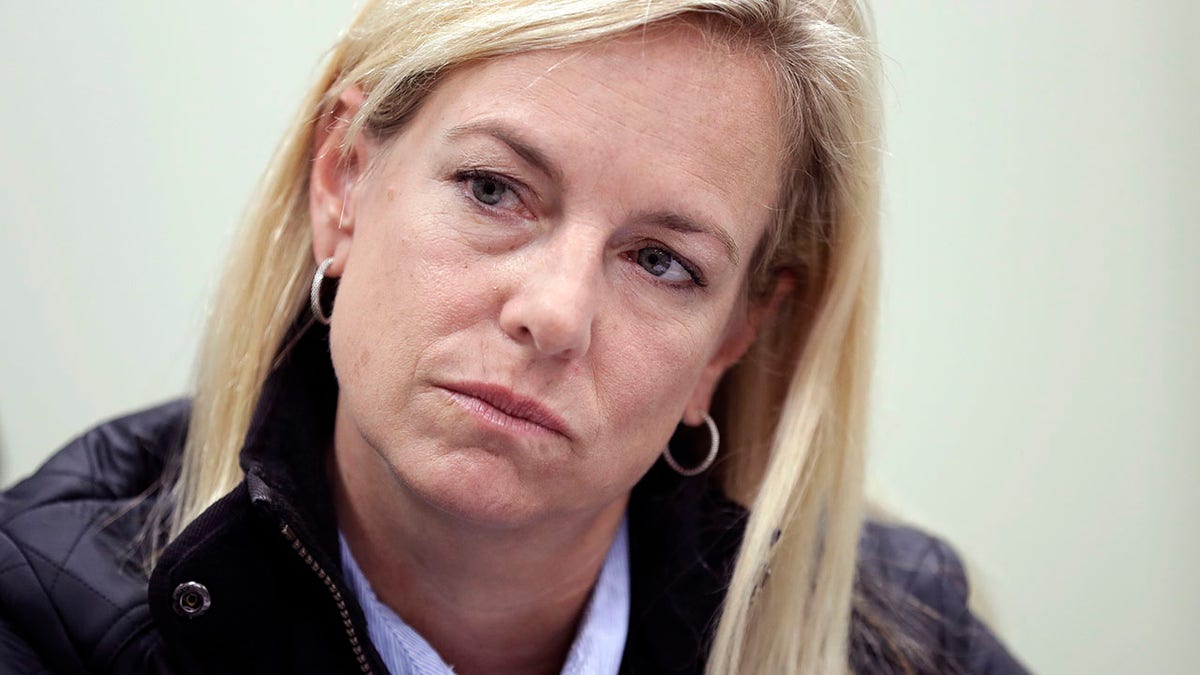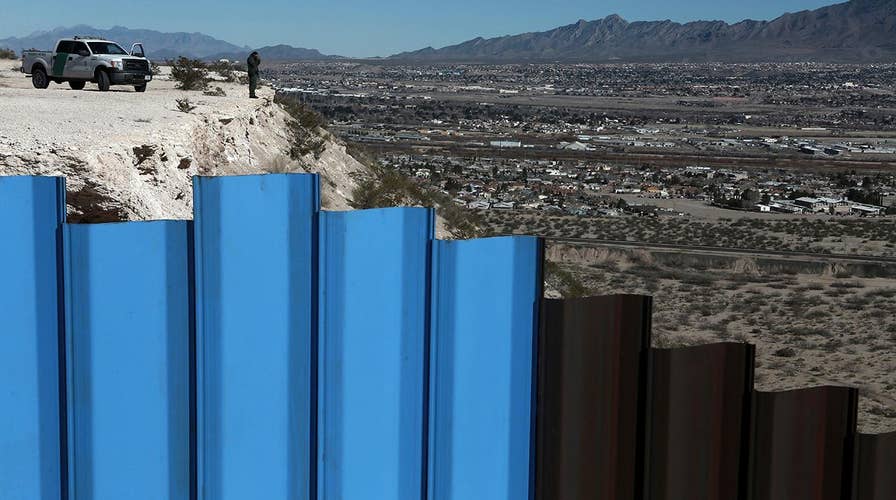U.S. immigration authorities said Wednesday that they have done new medical checks on virtually every child being held by the Border Patrol following the death of a second youngster in agency custody in less than three weeks' time.
Homeland Security Secretary Kirstjen Nielsen said Wednesday afternoon that she’s ordered “extraordinary protective measures” after the death of an 8-year-old Guatemalan child in immigration custody.
Border authorities did not disclose the results of the health checks.
But Nielsen said in a statement to Fox News that she had asked the Centers for Disease Control and Prevention to investigate what she says is an “uptick in sick children crossing our borders.” She also wants the U.S. Coast Guard to examine the medical programs offered by U.S. Customs and Border Protection, the agency that detained the 8-year-old and his father for a week.
Nielsen pledged that all children in the future will receive a “more thorough” medical screening after they are apprehended.
The U.S. government’s system for detaining migrants crossing the border is under strain, and the U.S. is seeing a sharp rise in families with children.
Nielsen on Wednesday blamed “a system that prevents parents who bring their children on a dangerous illegal journey from facing consequences for their actions.”
Her department argues that it must detain more people to discourage other Central American families from trying to migrate.
“As a result of bad judicial rulings from activist judges and inaction by Congress, we are seeing a flood of family units and unaccompanied alien children,” Nielsen’s statement continued.

“As a result of bad judicial rulings from activist judges and inaction by Congress, we are seeing a flood of family units and unaccompanied alien children,” Homeland Security Secretary Kirstjen Nielsen said Wednesday afternoon in a statement to Fox News. (AP Photo/Gregory Bull)
An 8-year-old boy identified by Guatemalan officials as Felipe Gomez Alonzo died in U.S. custody at a New Mexico hospital on Christmas Eve after suffering a cough, vomiting and fever, authorities said. The cause is under investigation, as is the death on Dec. 8 of another Guatemalan child, 7-year-old Jakelin Caal.
Alonzo had been detained by U.S. border authorities for a week and moved between facilities with his father, officials said. The last place the boy was held — after the first of two visits to the hospital on the day he died — was a highway checkpoint in New Mexico.
By its own regulations, Customs and Border Protection (CBP) is supposed to detain people for no more than 72 hours before turning them over to other government agencies responsible for long-term detention. CBP facilities are typically spare in accommodations. They offer food, water and blankets, but are challenged to provide medical professionals, teachers or some of the other resources that longer-term detention centers offer.
Caal was first held with her father at a small base in rural New Mexico that did not have running water, according to Democrats who visited it after the girl’s death.
Democrats said President Trump’s administration has prioritized a border wall — the funding of which has been a focus of the current partial government shutdown -- over investments in CBP checkpoints that have long needed attention.
CBP said it is reviewing all available options to relieve overcrowding in the El Paso sector, where Alonzo and his father were apprehended. The agency also said it has reached out to other government agencies for “surge medical assistance.”
CBP Commissioner Kevin McAleenan said in the agency’s defense that CBP has more than 1,500 emergency medical technicians on staff and that officers are taking dozens of sick children to hospitals every day.
“This is an extraordinarily rare occurrence,” McAleenan told “CBS This Morning,” in reference to the two deaths. “It’s been more than a decade since we’ve had a child pass away anywhere in a CBP process, so this is just devastating for us.”
It’s not uncommon for families in El Paso these days to spend more than a week in holding cells just as Alonzo and his father did, said Ruben Garcia, director of El Paso’s Annunciation House shelter.
Those problems predate the Trump administration. During a 2014 surge at the border, some families were put in holding cells for up to 20 days before being released, Garcia said.
The Department of Homeland Security’s inspector general examined nine CBP holding facilities earlier this year. In a September report, the inspector general said that the facilities complied with CBP standards and that people had access to food and water, toilets and sinks, and hygiene items — with “the exception of inconsistent cleanliness of the hold rooms.”
Just three of the nine facilities had “trained medical staff to conduct medical screening and provide basic medical care,” the report said. And showers were available for unaccompanied children at only four facilities.
Alonzo and his father were taken to two of the facilities the inspector general examined: first, the processing center at the Paso del Norte port of entry, then the El Paso Border Patrol station.
But just after 1 a.m. Sunday, the two were transferred 90 miles to the Border Patrol station at Alamogordo, New Mexico. CBP said it moved them “because of capacity levels” in El Paso. The next day, a border agent noticed the boy was coughing and had “glossy eyes,” and sent him to the hospital, the CBP said.
According to CBP statistics, border agents detained 5,283 children unaccompanied by a parent in November alone. Agents last month also apprehended 25,172 “family units,” or parents and children together. Both figures are highs for this year.
Children who arrive unaccompanied by a parent are supposed to go to longer-term facilities operated by the U.S. Department of Health and Human Services. But HHS’ system is also strained.
The Associated Press contributed to this report.






















